QuestionI adopted a 16yr old TB gelding from our local rescue 3 months ago. I don't know a whole lot of his history other than he suffered a stifle injury and his owner didn't want to wait for him to heal so they dumped him. He was on the track a brief time then was trained in dressage. He has been at the rescue, in a gelding field with almost no regular interaction with people for 6 years so he is very green despite his past training. He has a heart of gold and good work ethic but is very spooky and herd bound. He is turned out in a paddock alone during the day but has neighbors on both sides he can reach over the fence. He is stalled at night but it is open so he can see the other horses and has a very calming neighbor in the next stall. Anything medical has been ruled out. He is on grass hay and alfalfa plus a small ration of grain and probiotic's, all vet approved. I am wondering if maybe there is a natural supplement which would help calm him so we can get more out of our ground work? His daily grain intake is a little lower than the recommendation but I am still wondering if he may be 'grain high'? His vet wants to see him with about 50 to 60 more lbs on him so I am concerned with cutting his grain anymore #but he has gained weight since I got him#. He gets 3 flakes alfalfa in the am and 3 flakes grass hay in the PM. You could consider me a beginner. I rode and had horses for almost 10 years when I was younger but they were all very trained and almost 'bomb proof' and it has been almost 20 years since then. I am just a little thing and he is 16.2. Thank you so much in advance for your time in stearing me in the right direction! Oh yeah, he also has a mineral block outside and a Himalayan salt block in his stall, but seems to show little interest in either.
Answer
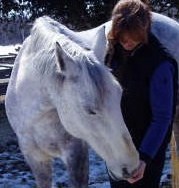 Friendly Bend
Friendly Bend
Hi, Jeni - You have certainly addressed the nutritional care of your gelding which is a great start. While managing your horse's diet can alleviate some physical causes of his behaviour, it requires good horsemanship and training to help change behaviours that have become habits AND to create an environment in which he feels safe and secure. Spookiness and separation anxiety (herd bound) are behaviours that tell us when a horse is feeling insecure and not safe being away from his herd. Based on his previous experiences with people, what reason does he have to trust humans or that he won't be moved to a different place again?
Horses learn from every experience they have and how the experience makes them feel physically and mentally. Former race horses and show horses often have issues from not only how they were handled, but the physical and emotional stress caused by having limited or no turn out and being fed a high grain diet. Why is your horse turned out alone? He was used to living in a herd of horses for 6 years. Now, from his perspective, he is in solitary confinement. Just seeing other horses is not enough. Imagine what it would be like for us to be kept in a room where we could see, but not touch the individuals in the nearby rooms. We would still feel somewhat isolated and perhaps even vulnerable. The herd offers security in numbers. An isolated horse - even one on the perimeter of the herd - is a vulnerable horse.
You can also work with your horse to increase his trust in you and help him build confidence. This starts with ground work - that is any time you are with your horse when you are not in the saddle. It includes time spent just being with him, leading him, grooming him, as well as focused training sessions. Thoroughbreds by nature are adrenaline junkies. They are bred to run really quickly which involves adrenaline being released into the blood stream. Thoroughbreds are really good at winding themselves up and not so good at bringing themselves down. But you can help change that. Anytime his poll goes higher than his withers, the flow of adrenaline is turned on. You can help turn it off by:
1) bringing his head down so that his poll is level with or below his withers.
2) Asking him to focus his attention on you
3) Asking him to respect your personal space
For more information about how to do this and more training tips, check out my articles on my website http://www.annegage.com/Articles.html


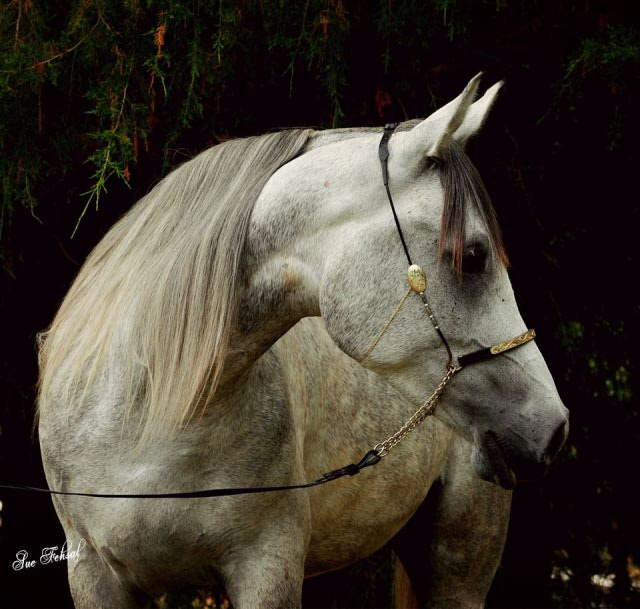 My Arabian
Question
Kadin
Hi, I have a 4 year old Arabian t
My Arabian
Question
Kadin
Hi, I have a 4 year old Arabian t
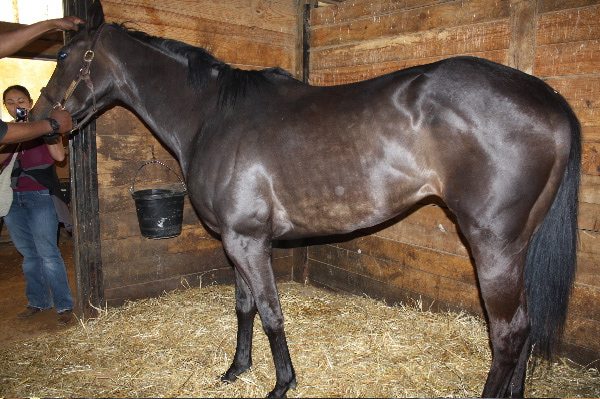 is it sweet itch
Question
light patches on belly
hello maam, may
is it sweet itch
Question
light patches on belly
hello maam, may
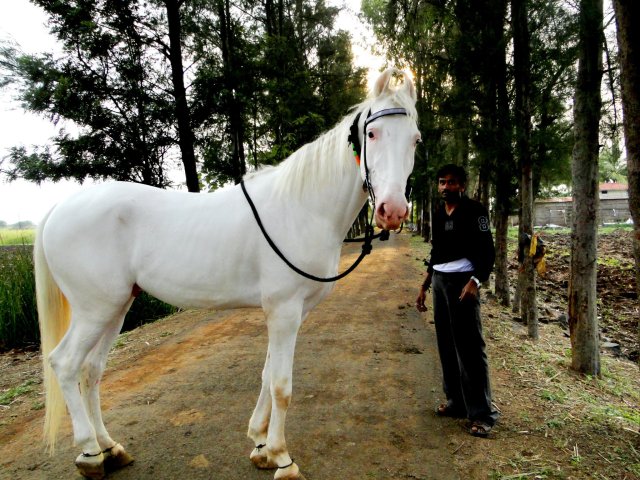 judge confirmation of this marwari horse
Question
judge confirmation of
hello, please judge the
judge confirmation of this marwari horse
Question
judge confirmation of
hello, please judge the
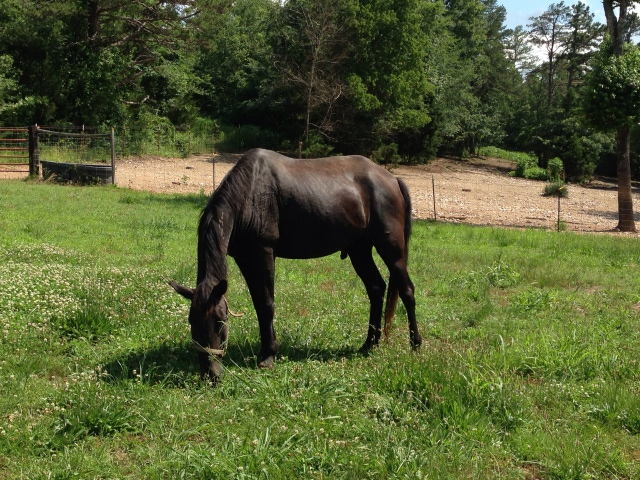 My Horse acts like a completely different horse when I let him out of his pasture/pen.
Question
My baby
I have a 20 year old fully brok
My Horse acts like a completely different horse when I let him out of his pasture/pen.
Question
My baby
I have a 20 year old fully brok
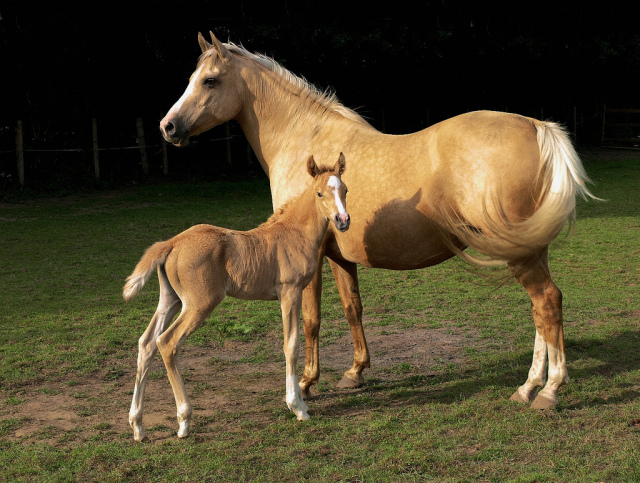 horse legs never grow
Question
horse legs never grow
hello, my dad always say
horse legs never grow
Question
horse legs never grow
hello, my dad always say